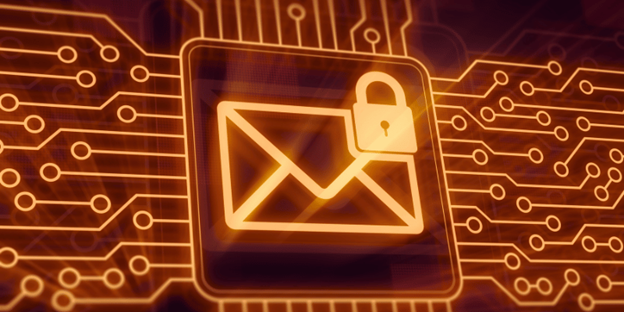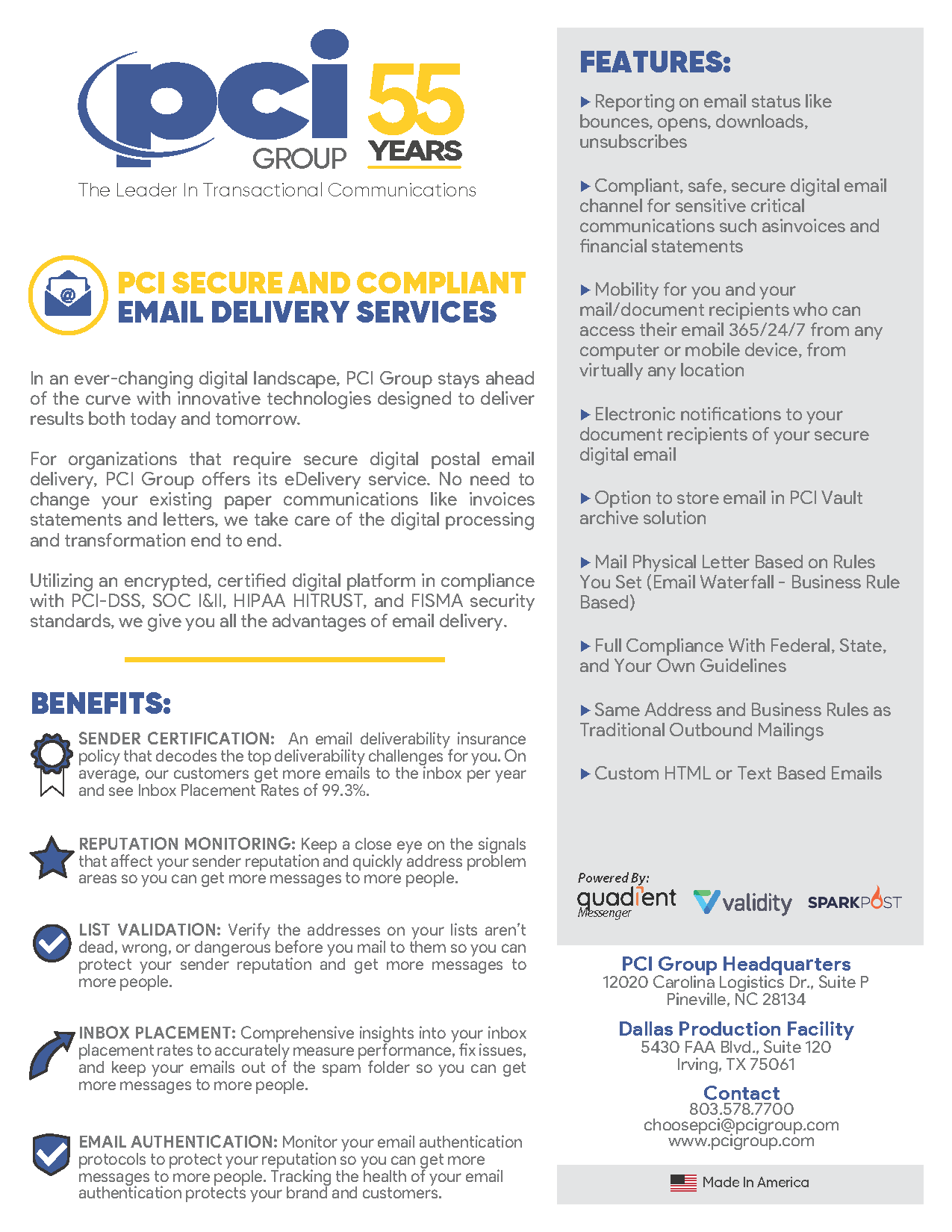
Transactional mail or emails are a unique subset of business communications. Because they contain either PII (personally identifiable information) or PHI (protected healthcare information), laws govern their creation and sending. Regulatory compliance for transactional communications is a mandate and non-negotiable.
Whether you manage operations internally or outsource them, you’re ultimately responsible for maintaining compliance. Keep reading this article for guidance on how to do this when you shift work to a provider.
Work With a Printer That Only Produces Transactional Communications
Professional printers often provide services for transactional and promotional mailings. It’s a typical business model, but it creates unnecessary risk. When a shop does many things, some of the safety nets aren’t feasible, like blocking off specific printers or workstations.
Security, in general, could be a bit lax since they don’t concentrate solely on regulated letters and documents.
Alternatively, outsourcing to a company that focuses only on transactional gives you an advantage. Their entire facility has compliance woven into every process and task. These organizations often have tight security access and only allow those who need to be in these areas.
These companies apply practices and strategies that enhance compliance, including Lean Manufacturing and Six Sigma. They also have dedicated resources in their compliance department who audit processes and stay up-to-date on changing regulations.
Review Accuracy Protocols
One critical component of compliance is accuracy. You need to ensure that each addressee receives the correct letter or statement. In large-scale production, this can seem daunting and complicated.
Technological innovation enables scalability with checks and balances. The most important equipment to have in place is intelligent inserters and barcodes for verification. Sophisticated inserters read the barcode of each page, which informs them how many pages to push into the envelope. Another camera takes an image of the inserted envelope to validate the process.
Partner With Printers That Go Beyond Standard Certifications
Many print companies have typical certifications necessary to follow compliance requirements. Most are HIPAA compliant and adhere to PCI DSS and FISMA. However, there are more standards to meet that offer additional compliance confidence.
Instead of just being HIPAA compliant, they should also be HITRUST certified. Businesses that meet SOCI & II also take the extra step of ensuring they have the necessary controls in place.
Certifications demonstrate compliance at that moment. You also need reassurance that they have a culture of compliance. Those who do are constantly auditing workflows proactively to identify and fix gaps. They also use the highest standards to protect data, like encryption, and perform regular vulnerability assessments and penetration tests.
Strengthen Compliance with Security
Compliance and data security are linked hand in glove. You can’t have one without the other. Data security in regulatory compliance for transactional communications can either be a stronghold or a weak link. For the former, the processes for production must include:
- Data encryption while at rest or in transit
- Firewall security and IPS (Intrusion Prevention System)
- SFTP secure file transmission protocols
- Network segmentation, which divides a main network into smaller ones to compartmentalize and apply unique security controls to each
- Multi-factor authentication
Data security isn’t the only concern. Physical security must be part of their plan, as well. It should, at a minimum, involve:
- Access-limiting key cards
- Door alarms
- Internal and external security cameras
- Gated entryway
- Secure property perimeter
- Compliant workflows for destroying paper or hardware containing PII or PHI
 Ensure Email Communications Are Compliant
Ensure Email Communications Are Compliant
As more transactional communications go digital, you need a secure, compliant way to send emails. It’s different from the emails you send that are marketing or operational. These emails include letters or documents with confidential information.
Thus, you need a robust and secure email platform for these communications. It should feature all the data security best practices and more. An email system for regulatory compliance for transactional communications can also offer:
- Higher deliverability
- Reputation monitoring
- List validation
- Email authentication
Regulatory Compliance for Transactional Communications Is Easy with PCI Group
We’ve been in the transactional communication business for decades. Our print and mail and email services accurately and compliantly deliver communications to consumers every day. Since this is all we do, our processes, technology, and practices all tie back to compliance.
Learn more about our solutions today with a no-cost consultation.


